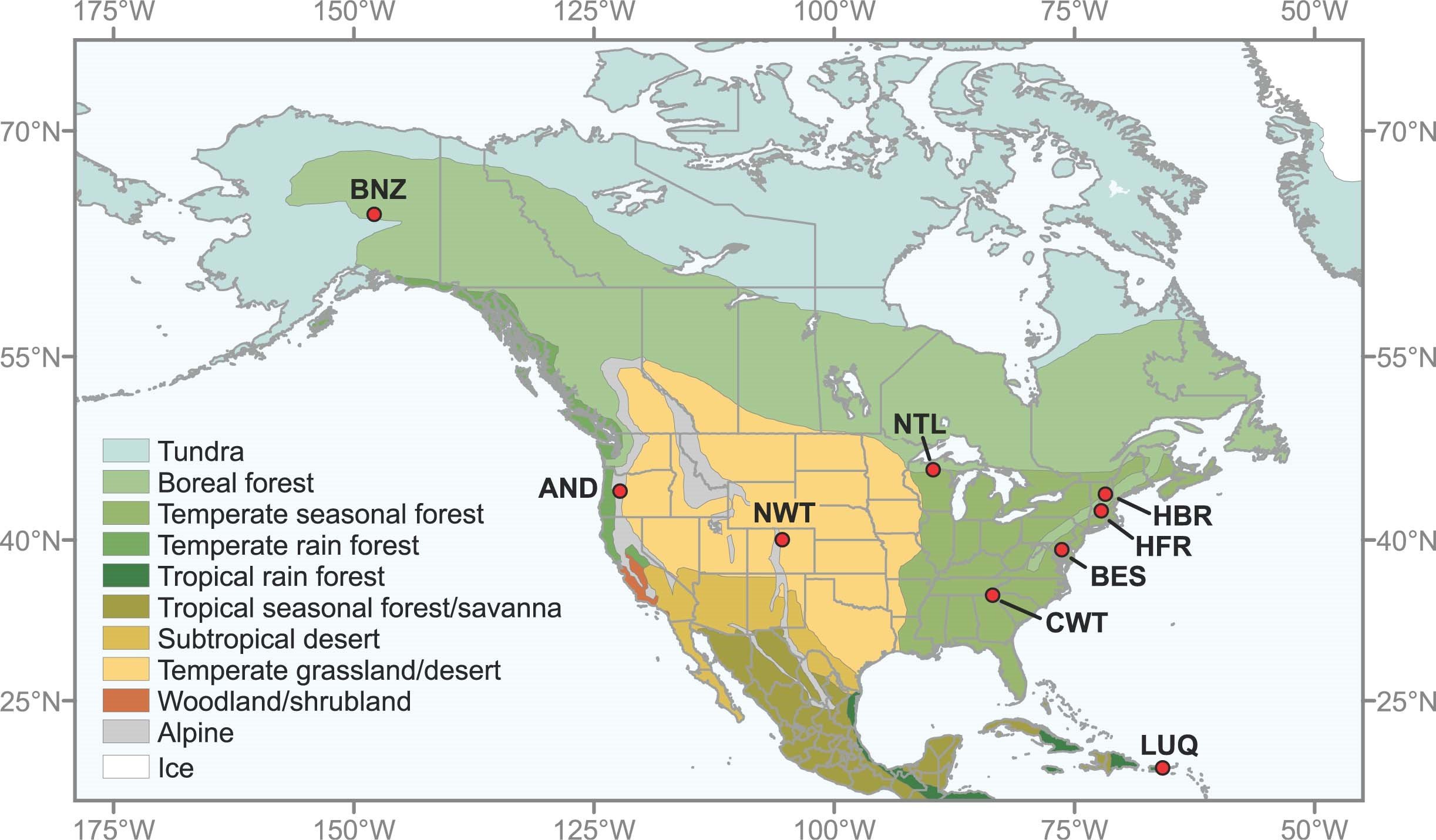Forest and freshwater ecosystem responses to climate change and variability at US LTER Sites
Campbell, J.L., Driscoll, C.T., Jones, J.A., Boose, E.R., Dugan, H.A., Groffman, P.M., Jackson, C.R., Jones, J.B., Juday, G.P., Lottig, N.R., et al. 2022. Forest and freshwater ecosystem responses to climate change and variability at US LTER sites. BioScience biab124. Available at https://doi.org/10.1093/biosci/biab124.
Abstract
Forest and freshwater ecosystems are tightly linked and together provide important ecosystem services, but climate change is affecting their species composition, structure, and function. Research at nine US Long Term Ecological Research sites reveals complex interactions and cascading effects of climate change, some of which feed back into the climate system. Air temperature has increased at all sites, and those in the Northeast have become wetter, whereas sites in the Northwest and Alaska have become slightly drier. These changes have altered streamflow and affected ecosystem processes, including primary production, carbon storage, water and nutrient cycling, and community dynamics. At some sites, the direct effects of climate change are the dominant driver altering ecosystems, whereas at other sites indirect effects or disturbances and stressors unrelated to climate change are more important. Long-term studies are critical for understanding the impacts of climate change on forest and freshwater ecosystems.

